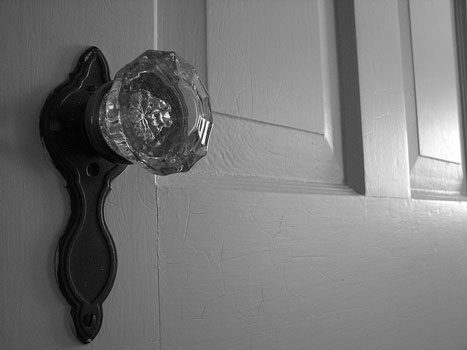Mary Sommers
Chicago, Illinois, United States

Elizabeth enraged her family by falling in love—the wrong thing to do, as far as they were concerned, for a poor girl from a broken home in a small town in Mexico. During a secret courtship, she became pregnant. Elizabeth’s pregnancy added another burden to her family, and they sent her north to stay in Chicago with relatives whom she had never met. She knew no English, had never lived in an urban setting, and had no means of caring for herself.
I first met Elizabeth on a home visit after she had given birth with the help our hospital practice. She and her elderly relatives seemed trapped by their desperate circumstances—they lived in an old house on Kedvale with uneven steps, few pieces of furniture, broken windows, and no money for repairs. She was housed in a room slightly larger than a closet in their basement. The basement was dark and damp, and only a small window let in any light from the outside. Basia, another midwife, and I slowly worked with the family during our home visits, using humor and persistence, to teach them tolerance and compassion. Eventually the family understood that Elizabeth needed to be accepted and that she and the baby needed to be brought upstairs.
Shortly after the first baby was born, Elizabeth became pregnant again. Her relatives, though frustrated, were more compassionate. But Elizabeth seemed to have regressed in her mothering skills. She gave her new baby solid foods at one week of age and still didn’t know bathing basics. Elizabeth felt uncomfortable with too much attention from others. She giggled nervously, and often bowed her head to the side before covering her mouth with her hand when she spoke. Basia, determined to stay with Elizabeth regardless of the patience required, enrolled her into a teen program. She saw in Elizabeth a young, but capable, woman. She encouraged Elizabeth to strive to improve her mothering, supported her in breast-feeding and instructed her in child development. Fortunately for her, the teen program would follow her for three years, and her family seemed more willing and capable. She also remained steadfast in her loyalty to the mysterious young man who was the father of her children. He had left money for her and the baby, which helped Elizabeth’s relatives better accept him. But neither he nor Elizabeth had the finances for a wedding, so the family forbade him to live with them.
Several years later and miles away from Kedvale, I was called as the backup midwife to a home birth of a mother having her third child. The home was a four-bedroom Georgian in a well-established South Side neighborhood. Labor progressed rapidly, and soon after I arrived, the woman delivered a healthy seven-pound baby girl, with her husband and two children in attendance. Her husband broke out a bottle of champagne, and the birth team and family toasted the new mother. As I began to fill out the birth certificate and ask the mother questions to complete the form, she initially seemed uncomfortable. When I asked her maiden name, she hesitated and bowed her head to the side, then covered her mouth with her hand. I couldn’t believe it. “Elizabeth, did you used to live on South Kedvale?”
She shyly nodded her head. “Yes, you visited me when I had my other children. With this pregnancy, my friends encouraged me to go to a private physician, but I knew I had to return to the clinic and the midwives. The midwives believed in me when no one else did.”
I was overwhelmed with joy. Elizabeth and her family had come into an abundant harvest. Her boyfriend had worked as a busboy, then apprenticed as a chef, and refined his skills to become a top chef at a prestigious restaurant. As his income increased, he married Elizabeth. This unexpected blessing of being reacquainted with Elizabeth, after she struggled with years of hardship, was one of the gifts of my profession.
I cherish this story, and her story does not stand alone. So often, as birth providers, we only see a glimpse of anyone’s life. Had we only known Elizabeth through her first birth, or her last birth, we would not have understood her triumphs. Hope is contagious; it changes the status quo and creates new realities.
MARY SOMMERS, CPM, holds a master’s degree in public service from DePaul University. She is the director of academic affairs for the Midwest Maternal Child Institute, and has over 20 years of experience in community health. Early in her career, she co-founded Chicago Community Midwives, a nonprofit home birth service. She has also worked as a midwife, doula, and lactation consultant for various private practices in the Chicago area and Madison, and has directed several nurse-midwifery practices. Mary has attended and assisted at more than 1,000 births in the United States, Mexico, and Malawi. In her novel More Than a Midwife, she shares stories of glory, grace, and joy, as well as heartbreak and tragedy from her extensive experiences.
Highlighted in Frontispiece Volume 4, Issue 4 – Fall 2012

Leave a Reply